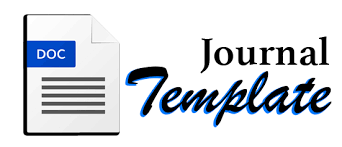Publication Ethics
Indonesian Engagement Journal (InEJ) is committed to upholding the highest standards of publication ethics. All parties involved in the publication process—authors, editors, reviewers, and the publisher—must adhere to ethical standards to ensure the integrity and credibility of academic publishing. This statement is based on guidelines from the Committee on Publication Ethics (COPE).
1. Duties of Authors
-
Originality and Plagiarism: Authors must ensure that their manuscripts are original works. Any references or influences from other works must be properly cited. Plagiarism in any form is unethical and unacceptable.
-
Data Accuracy: Authors should present accurate data and results. Fabrication, falsification, or manipulation of data is strictly prohibited.
-
Acknowledgment of Sources: Proper acknowledgment must be given to all contributors and funding sources.
-
Multiple or Redundant Publication: Authors must not submit the same manuscript to more than one journal simultaneously. Submitting previously published work without significant changes or justification is considered unethical.
-
Authorship: Only individuals who have made significant contributions to the research and writing process should be listed as authors. Others who have contributed should be acknowledged properly.
2. Duties of Editors
-
Fair and Unbiased Decisions: Editors must evaluate manuscripts solely based on academic merit, without discrimination on the basis of gender, religion, ethnicity, or political beliefs.
-
Confidentiality: Editors must maintain the confidentiality of all submitted manuscripts and related materials.
-
Conflict of Interest: Editors must recuse themselves from handling manuscripts in which they have conflicts of interest.
-
Publication Decisions: Editors are responsible for deciding which manuscripts will be published, based on the reviewers' recommendations and the journal’s editorial policy.
3. Duties of Reviewers
-
Confidentiality: Reviewers must treat manuscripts as confidential documents and should not share or discuss them with others.
-
Objectivity: Reviews must be conducted objectively, with clear and constructive feedback to improve the manuscript.
-
Acknowledgment of Sources: Reviewers should identify relevant published work that has not been cited and report any substantial similarities with other works.
-
Conflict of Interest: Reviewers must disclose any conflicts of interest and decline to review manuscripts where such conflicts exist.
4. Publisher's Responsibilities
-
Editorial Independence: The publisher supports editorial independence and ensures that decisions are not influenced by commercial interests.
-
Ethical Oversight: The publisher works closely with editors to handle ethical issues such as suspected misconduct or conflicts of interest.
-
Archiving and Accessibility: The publisher ensures the long-term digital preservation and accessibility of published content.
InEJ takes ethical concerns seriously and will investigate any allegations of misconduct. When necessary, appropriate actions such as retraction, correction, or withdrawal of articles will be taken in accordance with COPE guidelines.



